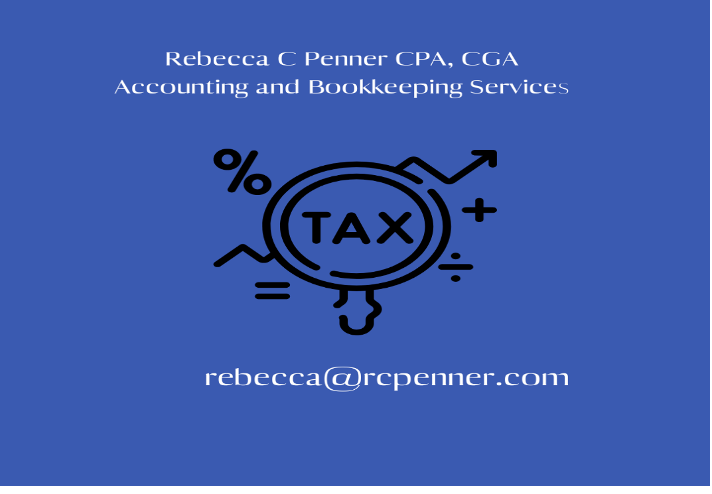Vacation Pay – what employers need to know in Alberta
It's that time of year again when many of us start planning our winter vacations. And if you're an employer in Alberta, that means it's also time to start thinking about vacation pay. As an employer, it's your responsibility to make sure you're providing your employees with the vacation pay they're entitled to under Alberta's Employment Standards Code.
Click the link to read from the Alberta government's site:https://www.alberta.ca/alberta-employment-standards-rules.aspx

Contact Rebecca C Penner Today! https://rcpenner.com/contact
Vacation Pay Basics
In Alberta, all employees are entitled to at least 2 weeks of vacation after 12 months of continuous employment. After 5 years of continuous employment, employees are entitled to 3 weeks of vacation.
Calculating Vacation Pay
For employees paid by monthly salary, the employer must pay the employee's regular rate of pay for the time of their vacation. Each week that an employee is off they are entitled to vacation pay which is calculated as follows: divide their monthly wage by 4.3333. This is the average number of weeks in a month.
If an employee's wage rate varies from day to day or week to week (for example, if they're paid hourly), you'll need to calculate their average daily wage rate over the previous 4 weeks before calculating their vacation pay. For example, if an employee worked 30 hours one week and 40 hours the next week, their average daily wage rate would be ($500 + $600) / 2 = $550 ((30 hours x $500) + (40 hours x $600)) / 2 = $550).
Last Words
As an employer in Alberta, it's important that you understand your obligations with respect to vacation pay. As stated above all employees are entitled to at least 2 weeks of vacation after 12 months of continuous employment, and vacation pay of at least 4% of their wages. If you have any questions about how to calculate your employees' vacation pay or about your obligations under Alberta's Employment Standards Code.
Contact Rebecca C Penner: https://rcpenner.com/contact
If you're wondering about your employee’s vacation pay, I can help. I am a Chartered Professional Accountant with over 15 years of experience in income tax, payroll, and accounting.
Contact my team today for a free consultation to learn more: https://rcpenner.com/contact
Thanks for reading, and we hope this information helps you.
Sincerely,
Rebecca C Penner CPA, CGA


How Incorporating in Alberta Can Optimize Your Tax Returns

The province of Alberta is well-known for being business friendly. One of the key reasons businesses choose to incorporate in Alberta is because of the province's low taxes. Alberta boasts the lowest rates of income tax and general sales tax in the country. Additionally, businesses are exempt from capital and payroll taxes. As a result, incorporating provincially can allow businesses to optimize their tax returns significantly.
Businesses in the province of Alberta are taxed at lower rates than businesses in any other province in Canada. The Alberta Corporate Tax Act provides for a lower rate of income tax. This makes it an attractive option for businesses looking to optimize their tax returns. When businesses incorporate provincially, they can take advantage of the lower tax rates offered by the Alberta Corporate Tax Act. This can result in significant savings on their taxes.
Before incorporating, it's important to speak with an accountant – contact Rebecca for a FREE consultation https://rcpenner.com/contact, or lawyer to determine what makes the most sense for your business. They will be able to advise you on the best course of action based on your specific circumstances.
Click the link to learn more about incorporating your business in Alberta: https://www.alberta.ca/incorporate-business-organization.aspx
Last words
Incorporating in Alberta can offer significant advantages for businesses in terms of lower taxes. If you are thinking about incorporating your business, be sure to speak with an accountant or lawyer first to determine if it makes sense for your business and review all eligibility requirements.
Contact Rebecca today for a free consultation to learn more about what she can do for your business: https://rcpenner.com/contact
Thanks for reading, and we hope this information helps!
Thank you for taking the time read my blog.
Sincerely,
Rebecca C Penner CPA, CGA


CPA Designated Accountant – Rebecca C Penner
In Canada, it takes six to seven years to become a Certified Public Accountant (CPA). The process generally starts with obtaining an undergraduate degree in accounting from a recognized university.
After that, the next step is to complete the CPA Professional Education Program (PEP), which is a two-year part-time program. Once you have completed your education and practical experience requirements, you can write the CPA exam.
Why it is Better for a Business to hire a CPA Designated Accountant
Besides completing the year's tax return, an accountant also can offer financial planning. Other tax (GST) or financial advice may be provided also.
As a business owner having this high level of accounting expertise looking after the financial part of your company is a smart decision in so many ways.
Keeping on top of the financial health of your business is no small task, and if not looked after properly could lead you and your company down a very expensive path.
There are a few key steps that an accountant can take to help keep you on track with the government in Canada.
1. First, an accountant will make sure your business is registered with the proper government agencies.
2. Second, an accountant can help you file the necessary paperwork for your business taxes.
3. Finally, an accountant can provide you with advice and guidance on how to stay compliant with government regulations.
By following these steps, you can ensure that your business is operating smoothly and efficiently.
Conclusion
If you are starting a business in Canada, it is important to consult with an accountant to ensure that you are taking the necessary steps to stay compliant with government regulations. An accountant can help you navigate the complex world of business taxes and ensure that you are paying the correct amount of taxes. They can also provide you with valuable advice on how to run your business effectively. By working with an accountant, you can ensure that your business is running smoothly and efficiently.
Contact us today to learn more about how we can help you!
Contact Rebecca today for a free consultation to learn more about what she can do for your business: https://rcpenner.com/contact
Thanks for reading, and we hope this information helps!
Thank you for taking the time read my blog.
Sincerely,
Rebecca C Penner CPA, CGA


The Current Best Accounting Practices for Small Businesses in Canada | Rebecca C Penner

Want to make sure your small business is keeping up with the latest accounting practices? Here's where you can find out!
There are a lot of things to think about when you're running a small business. One of the most important, but often overlooked, aspects of business is accounting. If you're not keeping up with the latest accounting practices, you could be putting your business at risk! In this blog post, we'll discuss the current best accounting practices for small businesses. We'll also provide tips on how to stay compliant with the law and keep your books in order.
What You Need to Know
As a small business owner, it's important to have a solid understanding of accounting principles, or if like most business owners you don't have the time then hire someone that does. This will ensure that you're able to make sound financial decisions for your business. It will also help you comply with the law and avoid penalties or fines. The Canadian government has several resources available to help small businesses with their accounting needs.
Click the link for more information from, the CRA: ==> https://www.canada.ca/en/revenue-agency/services/tax/businesses/small-businesses-self-employed-income/checklist-small-businesses.html
Below are just a few tips, from Rebecca, to help you get going:
-Hire an accountant and make sure they're familiar with Canadian accounting standards.
-Keep good records of all your financial transactions. This includes sales, purchases, receipts, invoices, and payments.
-File your taxes on time! Make sure you are aware of your filing deadlines to avoid any interest and penalties from the government.
By following these tips, you'll be well on your way to keeping your small business compliant with the latest accounting practices in Canada. Stay tuned for our next blog post, where we'll discuss tips for staying organized and keeping your books in order. Thanks for reading!
Contact Rebecca today for a free consultation to learn more:==> https://rcpenner.com/contact
Thanks for reading, and we hope this information helps you!
Thank you for taking the time read my blog.
Sincerely,
Rebecca C Penner CPA, CGA


Why every Business Owner needs an Accountant that understands Critical Thinking |
Rebecca C Penner

Contact Rebecca C Penner https://rcpenner.com/contact
Critical thinking is a skill that is important for all professionals, but especially accountants. Accountants need to be able to think critically to understand financial statements, identify potential red flags, and make informed recommendations. Critical thinking skills can be developed through practice and by using specific techniques. In this blog post, we will discuss some of the best techniques for improving your critical thinking skills as an accountant.
Why are critical thinking skills important in accounting?
Once you have learned how to develop critical thinking skills you will be better able to add value to data, interpret trends within the business, understand how people and performance intersect and take on a broader commercial outlook that benefits the business.
In the accounting profession, critical thinking skills are important because they enable accountants to:
1. Analyze data and identify key issues:
There are many ways to analyze data, but some key issues to consider when analyzing data include: - Identifying outliers: Outliers can be indicative of errors in data collection or processing and can skew results if not dealt with appropriately. - Checking for normality: Many statistical tests assume that data is normally distributed.
2. Develop creative solutions to problems.
When developing creative solutions to problems, it is important to think outside the box and come up with ideas that are not immediately obvious.- think critically: When thinking critically, it is important to consider all sides of an issue and to be open to new ideas.- communicate effectively: When communicating effectively, it is important to be clear and concise to ensure that your message is understood.- work collaboratively: When working collaboratively, it is important to be able to compromise and respect the ideas of others.- be flexible: When being flexible, it is important to be willing to change your plans if necessary and to adapt to new situations.- be organized: When being organized, it is important to keep track of all the information and resources you will need and to have a plan for how you will use them.
3. Think strategically about business decisions:
When thinking strategically about business decisions, it is important to consider the long-term implications of those decisions.- be able to work well under pressure: When working under pressure, it is important to be able to stay calm and focused, and to be able to prioritize tasks.- have strong problem-solving skills: When solving problems, it is important to be able to think creatively and to have strong analytical skills.- be able to work well in a team: When working in a team, it is important to be able to communicate effectively and to be able to work collaboratively towards a common goal.- have strong leadership skills: When leading a team, it is important to be able to inspire and motivate others, and to be able to make decisions that are in the best interests of the team.
4. Effectively communicate their ideas to others.
When communicating their ideas to others, individuals need to be clear and concise to ensure that their message is understood. It is also important for individuals to be able to listen to the ideas of others and to be open to new suggestions. - work together in a team. When working in a team, individuals need to be able to communicate effectively and be willing to compromise to achieve a common goal - have strong problem-solving skills. When solving problems, individuals need to be able to think creatively and have strong analytical skills. When working with data, it is important to be aware of potential issues that could skew results, such as data that is not normally distributed. It is also important to develop creative solutions to problems and to think critically about business decisions. When working in a team, individuals need to be able to communicate effectively and have strong problem-solving skills. Being adaptable is also key, as is being organized and having a clear understanding of roles and responsibilities. Strong leadership skills are also essential for those in charge of leading a team.
Read this great article if you are thinking about becoming an Accountant:
Thanks for reading, and we hope this information helps you.
Thank you for taking the time read my blog.
Sincerely,
Rebecca C Penner CPA, CGA


What Does it Mean When the CRA audits you?
| Rebecca C Penner
Find out what an audit by the Canada Revenue Agency entails and learn how to best prepare for and respond to an audit should one be initiated.

Contact Rebecca C Penner https://rcpenner.com/contact
If You Are Selected for a Tax Audit
If you are selected for a tax audit by the Canada Revenue Agency (CRA), it means that the CRA will be taking a closer look at your tax return to make sure that you have reported your income and expenses accurately. The CRA may also request additional documentation to support your claims. While it can be daunting to receive an audit notice, it is important to remember that an audit does not necessarily mean that you have done anything wrong. In most cases, audits are simply a routine part of the CRA's job to ensure that everyone is complying with Canada's tax laws. However, if the CRA discovers that you have underreported your income or claimed ineligible expenses, you may be required to pay additional taxes and penalties. If you are facing a CRA audit, it is best to seek professional help to ensure that you are complying with all of the relevant tax laws and regulations.
Click the link to read about CRA audits https://www.canada.ca/en/revenue-agency/services/tax/businesses/topics/changes-your-business/business-audits.html
When the Canada Revenue Agency (CRA) conducts an audit, it reviews the books and records of a taxpayer to ensure that they have been reported correctly. The CRA can ask for a variety of documents, including past tax returns, bank statements, invoices, receipts, and cancelled cheques. If you are under audit, it is important to be prepared and to cooperate fully with the CRA. Rebecca C Penner can help you with this daunting task. To help put your mind at ease contact Rebecca today! https://rcpenner.com/contact
Why You May Be Chosen for Audit
The CRA may choose to conduct an audit based on the frequency or likelihood of errors in tax returns, indications that you're non-compliant with paying taxes owed, and information not consistent with other similar files and/or investigations.
If you have any questions or concerns about an audit, please do not hesitate to contact Rebecca C Penner at https://rcpenner.com/contact
Rebecca will be more than happy to help guide you through the process and answer any questions you may have. Remember, it is always better to be safe than sorry when it comes to your taxes. Thanks for reading!
Thank you for taking the time to read my article. Don’t miss out on future blogs. Sign up to get them directly to your email inbox hot off the press.
Sincerely
Rebecca C Penner CPA, CGA


Does a Small Business need to Incorporate | Rebecca C Penner
Incorporating your small business can be beneficial, but it also has its drawbacks. Here are the advantages and disadvantages of incorporating for small businesses.
There is a lot of confusion around when a small business needs to incorporate. Many people believe that if your business is making a profit, then you must incorporate it in order to protect yourself and your assets. However, this isn't always the case. In this blog post, we will explore when a small business needs to incorporate and what the benefits are of doing so. We will also provide tips for choosing the right corporate structure for your business. So, whether you are just starting out or have been running your business for years, read on for some valuable information!
There are many benefits to incorporating your small business, including:
- Increased credibility: When you incorporate your business, it shows that you are serious about your business and are committed to its success. This can help you attract more customers and clients, as well as partners and investors.
- Access to more capital: Incorporating your business can make it easier to secure loans and investment capital. This is because banks and investors view incorporated businesses as being more stable and less risky than unincorporated businesses.
- Tax advantages: The ability to use the small business deduction and the possibility of paying tax at a lower rate.
Choosing the Right Corporate Structure
Choosing the right corporate structure for your small business is an important decision. There are several different types of business structures, including sole proprietorships, partnerships, and corporations. Each type has its own advantages and disadvantages, so it's important to choose the one that best suits your needs. You can speak with a lawyer or accountant to get more information about the different types of business structures and to help you choose the right one for your business.
If you're thinking about incorporating your small business, we hope this blog post has given you some helpful information. Incorporating can provide many benefits, but it's important to make sure that it's the right decision for your business. We wish you the best of luck in your business endeavours!
If you need help with your small business, please don’t hesitate to contact me. We can set up a FREE consultation to discuss your specific needs and then come up with an action plan.
Thank you for taking the time to read my article.
Don’t miss out on future blogs. Sign up to get them directly to your email inbox hot off the press.
Sincerely
Rebecca C Penner CPA, CGA

5 Purchases You Didn't Know Were Tax Deductible
Rebecca C Penner Accountant

Contact Rebecca today for a free consultation: https://rcpenner.com/contact
Did you know that there are several purchases you can make throughout the year that are tax deductible? Here's a list of five common ones!
As a Canadian taxpayer, you may be eligible to deduct some of your expenses on your income tax return. This includes certain purchases that you might not have expected to be tax deductible.
Here are five items you may be able to claim:
1. Vehicle Expenses – You may be able to deduct certain vehicle-related expenses if you use your vehicle for business purposes. This could include things like fuel, maintenance, and insurance. *Please note: this deduction is in very specific situations where your employer requires you to do it and provide a T2200.
2. Union or Membership Dues – You may be able to deduct your dues on your tax return. Your accountant will require receipts.
3. Child Care Costs – If you have children, you may be able to deduct childcare expenses on your taxes.
4. Home Office Expenses – If you work from home and use part of your home for business purposes, you can deduct certain expenses on your taxes. This could include things like a portion of your mortgage or rent, electricity, and heating costs. *Please note: this deduction is in very specific situations where your employer requires you to do it and provide a T2200.
5. Moving Expenses – This deduction is for people who are required to move more than 40 km’s for work purposes. Click the link to see other deductions that may apply to you https://www.canada.ca/en/revenue-agency/services/tax/businesses/topics/sole-proprietorships-partnerships/business-expenses.html
If you're wondering what other types of expenses you can claim on your tax return, don't worry! We've got you covered.
Rebecca C. Penner is a Chartered Professional Accountant with over 15 years of experience in income tax and accounting.
Contact Rebecca today for a free consultation to learn more about the deductions that may be available to you https://rcpenner.com/contact
Thanks for reading, and we hope this information helps you save money on your taxes next year!
Thank you for taking the time read my blog.
Sincerely,
Rebecca C Penner CPA, CGA


How Outsourcing CFO Services Can Help Your Business

If you’re like most business owners, you are always looking for ways to save money and improve your bottom line. One way to do this is by outsourcing your CFO services. By doing so, you can get the benefit of having a financial expert on staff without paying the high salary and benefits that come with hiring a full-time CFO. In this blog post, we will discuss the benefits of outsourcing CFO services and how it can help your business grow!
What is an Outsourced CFO?
An outsourced CFO is an accountant or finance leader who provides top-tier finance, business, accounting, and operational guidance for your business on a part-time or full-time basis. You can use an outsourced CFO to be your interim for the duration of a project, during a busy season, or when you're experiencing high growth.
Outsourcing a CFO position can also help you with bookkeeping services budgeting, financial forecasting, raising capital, and more. Outsourced CFOs are experienced in working with businesses of all sizes across various industries. At Rebecca C Penner we offer great bookkeeping services, click the link:https://rcpenner.com/bookkeeping
If you're looking for expert advice and guidance to take your business to the next level, consider outsourcing your CFO.
Benefits of outsourcing CFO Services
There are many benefits to outsourcing your CFO services. Perhaps the most obvious benefit is that it can save you a lot of money. A full-time CFO can cost upwards of $200,000 per year, including salary and benefits. When you outsource your CFO services, you only have to pay for the services you need, when you need them. This can save your business a lot of money, which can be reinvested back into the business or used to improve your bottom line.
A great article from Globe News Wire, if you are curious to find out why outsourcing your CFO position might be for you: https://www.globenewswire.com/en/news-release/2022/06/29/2471535/0/en/Scale-Up-a-Small-Business-With-a-World-Class-Outsourced-Virtual-CFO.html
Outsourcing your CFO services allows you access to a wide range of talent and experience. When you hire an in-house CFO, you are limited to the skills and experience of that one individual.
If you’re interested in learning more about the benefits of outsourcing your CFO services, please don’t hesitate to contact Rebecca Penner at:https://rcpenner.com/contact I would be happy to answer any questions you have and provide more information about how the services we provide.
Thank you for taking the time read my blog.
Sincerely,
Rebecca C Penner CPA, CGA


The Top 7 Benefits of Using Accounting Services
There are many benefits of using accounting services. Some of the top reasons include getting accurate and timely financial information, gaining an objective perspective on your business, improving decision-making ability, preparing for tax time, and more!
In this blog post, we will discuss each of these benefits in more detail. If you are considering hiring an accountant for your business, read on to learn more about why it is a wise decision! https://rcpenner.com/contact

Book Your FREE Consultation: https://rcpenner.com/bookkeeping
If you're a business owner, you know that keeping track of your finances is essential. But doing everything yourself can be time-consuming and overwhelming. That's where accounting services can help. Here are seven benefits of using an accountant:
1. Accurate and timely financial information:
An accountant can make sure your financial records are accurate and up to date. This is important for making sound business decisions and preparing your taxes.
2. Gaining an Objective Perspective:
An accountant can provide an unbiased view of your business finances. They can offer insights and recommendations to help you improve your bottom line.
3. Improving Decision-Making Ability:
Having accurate financial information is critical for making informed business decisions. An accountant can help you understand your financial situation and make smart choices about where to allocate your resources.
4. Preparing for Tax Time:
Tax season can be stressful, but an accountant can take care of all the details for you. They can ensure you’re taking advantage of all the deductions and credits you’re entitled to and help you avoid any penalties.
5. Saving Time:
An accountant can save you a lot of time by taking care of all your bookkeeping and financial reporting. If the accountant offers the service of bookkeeping. This frees up your time to focus on other aspects of running your business.
6. Peace of Mind:
Knowing your finances are in good hands can give you peace of mind. An accountant can help you avoid financial problems down the road and ensure your business is on solid footing.
7. Reducing Stress:
Dealing with money can be stressful, but an accountant can take some of the burdens off your shoulders. They can handle all the financial details so you can focus on running your company.
If you are looking for help with your finances, consider hiring an accountant. We can provide many benefits to your business. Don’t let your bookkeeping and accounting get you down, give me a call today and we can discuss how to move forward and bring you peace of mind. https://rcpenner.com/contact
Thank you for taking the time to read my article.
Don’t miss out on future blogs. Sign up to get them directly to your email inbox hot off the press.
Sincerely
Rebecca C Penner CPA, CGA
